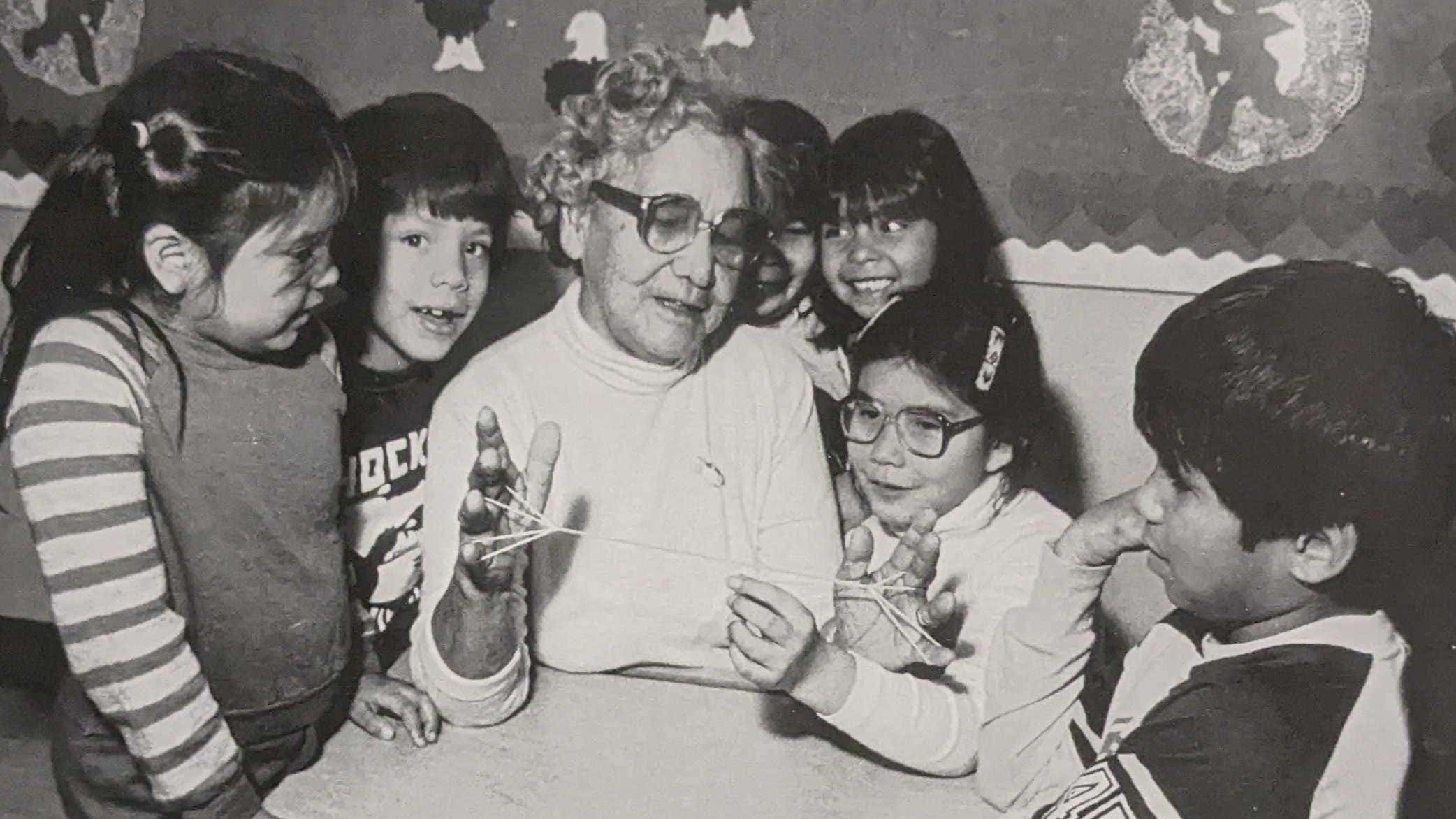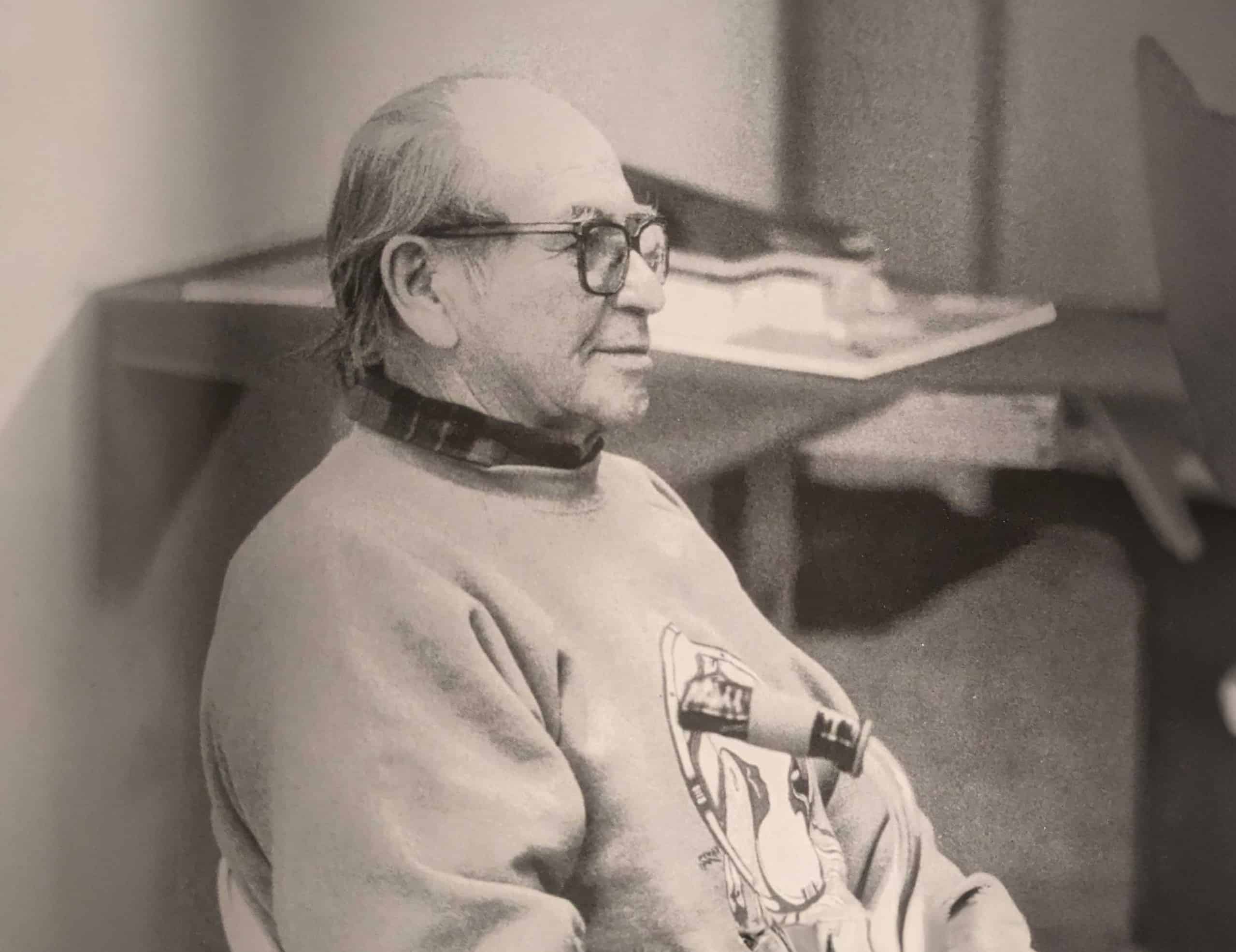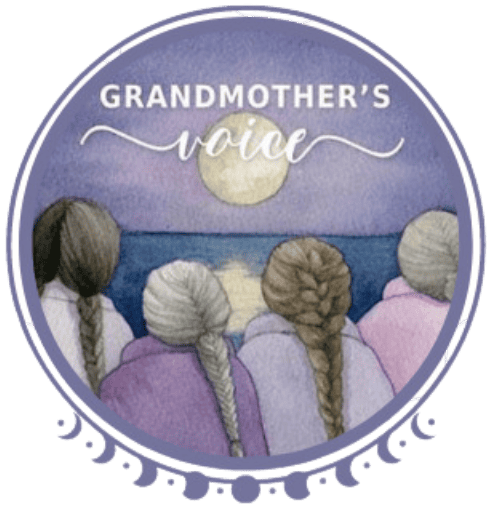In the Presence of Wisdom: Voices of the Land
Taken from the foreword of Voices of the Land, 1993. When the Elders met at the gathering “The Voice of

Adapted from the writings of Kate Assinewe, Wikwemikong Unceded Indian Reserve
In the past, Indigenous elders held a position of utmost respect and trust within their communities. When parents needed to leave home, they entrusted their young ones to the care of an elder. The children would pay close attention to the advice these respected people shared. Wherever a family travelled, a particular elder accompanied them. This elder was chosen because of their profound knowledge, foresight, extensive life experience, and unique qualities.
The elders had a calm and peaceful demeanour. Their presence provided a sense of security for those under their guidance. Indigenous people always had elders in their lives, like Kate’s 90-year-old babysitter who communicated solely in the native language. She once said, “One day your doodem will look after you, like your guardian angel.” While caring for a 94-year-old man, Kate was told, “You have been good to me, and I will always be with you.” These words underscore the deep connection and respect that exists between Indigenous people and their elders.
This profound respect for elders is an integral part of Indigenous history and tradition. It signifies the importance of nurturing and passing down the wisdom of the elders to future generations. The role of Indigenous elders continues to play a vital role in contemporary Indigenous education and the ongoing journey of truth and reconciliation.
In Indigenous communities of the past, each child’s birth was accompanied by a significant and meaningful event. An elder or wise member of the community would bestow a name on the child. This name, given with great purpose and ceremony, connected the child to the Great Spirit and the community’s collective identity. Your name is to be upheld with honour and respect in all aspects of life, including prayers, ceremonies, public duties, and healing rituals.
The name became more than just a label; it shaped the child’s personality and identity as they grew. Other generations sought to preserve and cherish these names, ensuring their enduring legacy. Acknowledging and using the child’s name in all references became a crucial part of daily life, instilling meaning in every activity.
One vital aspect of nurturing Indigenous identity and culture is teaching the child the language of their people. Encouraging them to grow strong and proud, free from the shame of their heritage, is essential. The importance of carrying one’s name and heritage was emphasized, as it was instrumental in preserving Indigenous culture.
This dedication to culture, language, and the wisdom passed down by elders is how Indigenous culture continues to flourish. It remains a way of life, a gift from the Great Spirit to the Aboriginal people. Each individual possesses the knowledge and gifts to perpetuate their culture through their language, customs, and the teachings of their respected elders.
Incorporating and passing on these values to younger generations is not only a part of Indigenous history but also a vital aspect of Indigenous education. It forms a critical component of the ongoing journey towards truth and reconciliation, ensuring that the cultural richness and wisdom of Indigenous communities thrive and endure.
Taken from the foreword of Voices of the Land, 1993. When the Elders met at the gathering “The Voice of

Adapted from Association of Friends, August 1995 Art, a lifelong resident of Birch Island, exemplifies commitment and community engagement. Married to
Grandmother’s Voice: Creating opportunities for Indigenous community members to share their teachings, healing practices and traditional handicraft creation with the broader community.
Elevating Indigenous Knowledge and Culture across Halton Region has been the foundation of our organization. Collectively, we continue to serve as a beacon for building awareness and fostering connectedness. Rooted in our Nation’s origins, we are dedicated to enhancing capacity and illuminating the landscape of Indigenous social services and determinants of health. Join us on this transformative journey as we strive to strengthen bonds, raise awareness, and contribute to the well-being of our communities.
Grandmother’s Voice International Business #799454954RC0001


© 2024 All Rights Reserved.